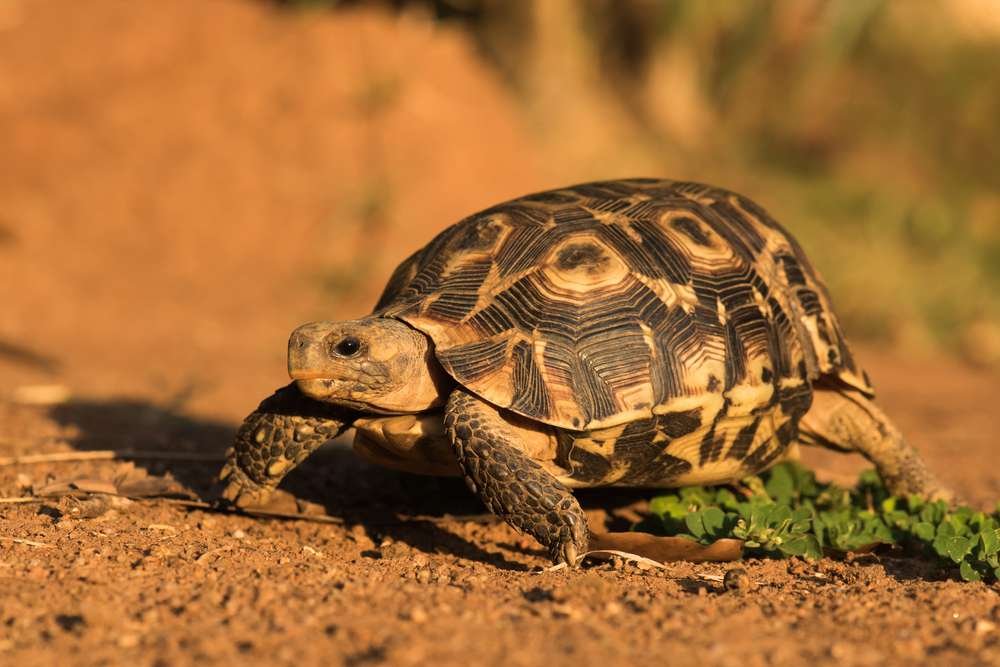Bell’s Hinged Tortoise
( Southeastern hinge-back tortoise )
- Kinixys belliana and Kinixys belliana zombensis
- IUCN Status: Least Concern
- Threat: harmless
- Venom/Toxin: none
- Trend: decreasing

- Phylum: Chordata
- Class: Reptilia
- Order: Testudines
- Suborder: Cryptodira
- Family: Testudinidae
- Genus: Kinixys
Share:
General Information
All tortoises are actually turtles, as they all belong to the order of Testudines, but not all turtles are tortoises! The Bell’s hinged tortoise is a smaller sized tortoise compared to other variaties of tortoise found in Zambia.
Fun Facts!
Turtles and Tortoises are known to be highly intelligent. They can dig under or plan their escape from captivity, they can learn new tricks and remember them for a very long time. Another interesting feature is that they have both an exoskeleton (the shell on the outside) and an endoskeleton (the bones on the inside).
Description
It is a medium-sized light brown tortoise On the back of its shell, the tortoise has a 90 degree hinge which, when closed, can protect its rear legs and tail from predators. The scutes on its slightly domed and elongated shell typically have a radiating pattern of dark patches, though these can fade. Adult males have a concave belly. Most Bell’s hinge-backs have five claws on each forefoot.
- Length: up to 22 cm
Ecology and Behaviour
In its natural habitat, its predators are leopards, hawks and eagles.
Diet
Bell’s hing backed tortoises are omnivores and feed on insects, millipedes, snails, slugs, dead frogs and tadpoles are eaten and a wide variety of vegetation, fruit and even fungi
Reproduction
Conservation
It is categorized by the International Union for Conservation of Nature (IUCN) as, “Least Concern”.
Distribution and Habitat
They favour tropical and sub-tropical savannahs of sub-Saharan Africa.
Interaction with humans
Currently it is mainly threatened by widespread collection from the wild for the illegal international trade in the species. It is also collected by local peoples for food and human population growth in the area is putting pressure on the species. Human-induced fire is also a threat.
In most Zambian cultures, turtles and tortoises are revered and respected by people. It is said that one should never kill a turtle or tortoise without reason. If you are to come across one stuck upside down along your path, it is said to be good luck to help it and turn it over to let it goon its way and that doing the opposite or leaving it stuck is very bad luck and karma.
No donation to this project yet.
| M | T | W | T | F | S | S |
|---|---|---|---|---|---|---|
| 1 | 2 | 3 | 4 | 5 | 6 | 7 |
| 8 | 9 | 10 | 11 | 12 | 13 | 14 |
| 15 | 16 | 17 | 18 | 19 | 20 | 21 |
| 22 | 23 | 24 | 25 | 26 | 27 | 28 |
| 29 | 30 | 31 | ||||


